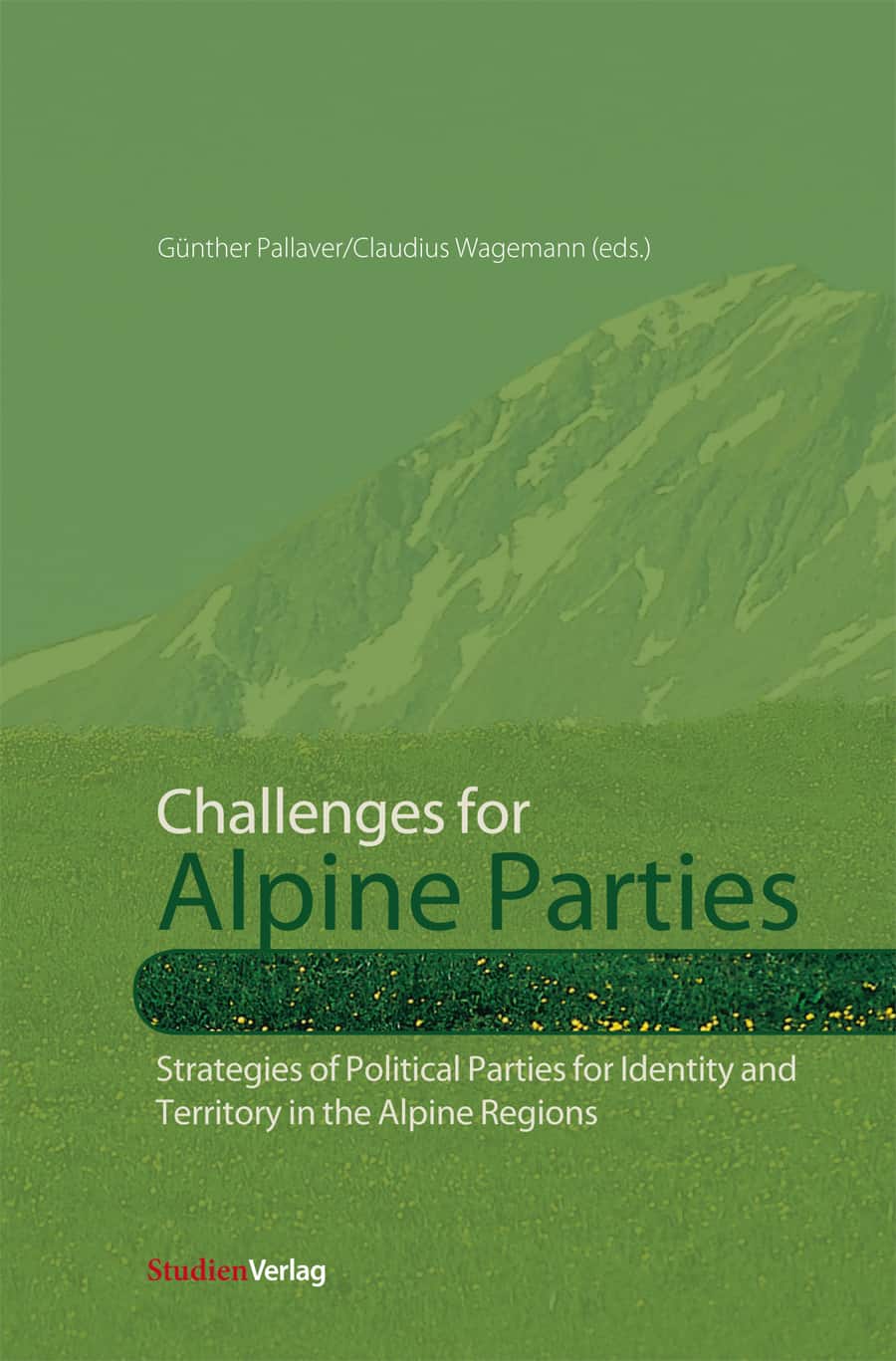Der englischsprachige Sammelband zeigt aktuelle Entwicklungen und Herausforderungen für politische Parteien im alpinen Raum auf.
Some political scientists argue that cleavages, especially the class cleavage, no longer represent a significant point of political conflict. This book takes issue with this claim, demonstrating that other cleavages structure party competition. This is nowhere more evident than in the European Alpine region. In “Challenges to Consensual Politics”, Caramani and Mény (2003) maintain that ethno-linguistic, centre-periphery, religious, and rural-urban factors continued to survive, indeed thrive, in the Alpine region, informing the party politics of territories such as Switzerland, South Tyrol, Lombardy, Austria, Bavaria and Valle d’Aosta.
This book examines how issues relating to territory and identity have (re)emerged and have been strengthened in the Alpine region, overlapping with class and ideological dimensions of party politics. Decentralisation and supranational integration pose specific challenges and opportunities for political actors in the region, who must now negotiate between competing pressures – local, regional, national, supranational and global ones – and focus their strategies on multiple levels. In particular, political parties face the challenge of maintaining regional, cultural, and linguistic identities whilst responding to the perceived threat of immigration, ‘fuzzy borders’ and multiculturalism hastened by globalisation. The book focuses on strategies employed by political parties operating in the Alpine region and identities common themes and patterns of party competition. The emphasis is primarily on territorial cleavages related to demands for self-determination, and linguistic and cultural protection, while also examining how parties use these issues to inform socio-economic demands. Moreover, the focus is on how Alpine parties operate on multiple levels – the regional, national and European one – and how they have in some cases moved from ‘protest parties’ to parties in power.













